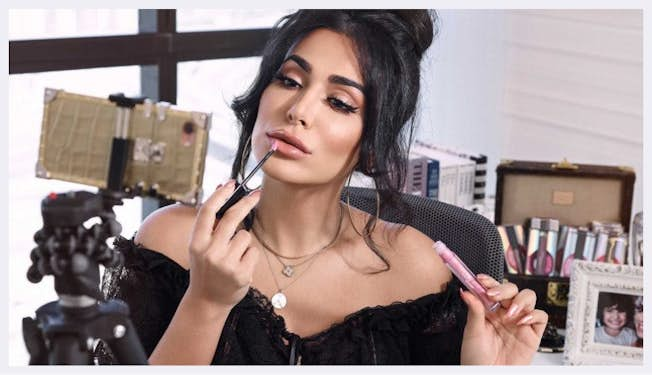The Lucrative Rise of Social Media Influencer Marketing
The Lucrative Rise of Social Media Influencer Marketing

In today's digital age, social media influencers have become a driving force in marketing. With millions of engaged followers across platforms like Instagram, YouTube, and TikTok, these online personalities can make or break a brand. For companies hoping to expand their reach, partnering with relevant influencers represents a major opportunity. However, with increasing competition for collaboration, brands must act quickly if they hope to tap into this marketing goldmine.
The premise behind influencer marketing is simple. Social media stars earn commissions by creating sponsored content that promotes products to their many followers. When done right, this content feels organic as if the influencer genuinely loves the brand. A succinct product testimonial or strategically placed item can go a long way. Followers place immense trust in recommendations from these influencers who feel more like friends.
From a business perspective, brands benefit tremendously. Not only do they rapidly expand their audience, but they gain the credibility of a bonafide endorsement. The key is finding influencers whose persona and content align closely with the product. A fitness influencer would make sense for a new line of athleticwear for instance. This targeted approach ensures campaigns resonate with the right demographics. In the same way, if you want to run your website, video marketing with brand videos might be the first lesson you should learn.

With the rise of social media, nearly anyone can become an influencer in their chosen niche. While top stars command six and seven-figure deals, micro-influencers with just a few thousand engaged followers can still earn respectable commissions. Brands large and small find it well worth the investment for access to these concentrated, loyal networks. but somebody still struggling with it without good money. Taking YouTube bloggers as an example, grow youtube channels might be essential for YouTubers. cooperation with these brands may also bring some traffic and some social influence. Obviously beneficial to both parties.
However, competition for influencer marketing deals grows more intense by the day. As more brands enter the space, securing partnerships now takes considerable effort. Many influencers are particular about protecting their personal brand as well. They will only promote products that genuinely interest them and their audience.
To stand out from the crowd, brands must put extra thought into their proposals. Make sure to highlight why this particular influencer makes sense for the campaign. Flatter their expertise in the product niche and ability to connect with followers. Provide ideas for creative sponsored content that will appeal to their audience. Be flexible and open to suggestions to ensure the influencer remains authentic.
Many influencer programs offer tiered commission structures. Larger accounts with greater reach and engagement demand higher payouts. Micro-influencers may only fetch modest fees in the hundreds of dollars. However, they remain a cost-effective marketing channel for many small companies. With the right brand alignment, even micro-influencers can deliver an impressive return on investment.

Before finalizing any influencer deals, educate yourself on Federal Trade Commission guidelines. Paid endorsements must clearly disclose their sponsored nature to avoid misleading consumers. Many influencers diligently adhere to these rules already. However, securing written agreements on disclosure obligations protects all parties down the road.
Tracking performance is key to maximizing future marketing dollars. Use unique promo codes and pixels to see direct sales driven by each influencer. Note engagement metrics like likes, clicks, and comments to gauge audience reception. Consider survey data or focus groups to understand if the collaboration actually changed consumer opinions.
Adjust your influencer approach over time based on results. Expand partnerships that perform well. phase out those failing to generate sufficient return. A/B test different types of sponsored content to determine what resonates most with target demographics. The data will reveal ideal influencer partners tailored to your brand.
With the rise of direct-to-consumer brands, influencer marketing shows no signs of slowing. For digitally savvy companies, ignoring this marketing channel would be a major mistake. Now is the time to explore cost-effective micro-influencer campaigns that can deliver real results. As competition for top talent intensifies, brands acting right now gain a distinct advantage. They will secure prime influencer partnerships before costs and exclusivity cut off access.

In summary, partnering with relevant social media influencers represents a lucrative marketing opportunity for brands. However, changing industry dynamics mean that window is closing fast. Savvy marketers are locking in deals with rising stars in their niche while they remain reasonably affordable and receptive. They understand that flexible, creative proposals focused on the influencer's audience and interests help win collaboration. For companies that master this new form of digital word-of-mouth marketing, sizable rewards await. The rest risk being left behind by competitors embracing strategic influencer partnerships.


 by Admin
by Admin




